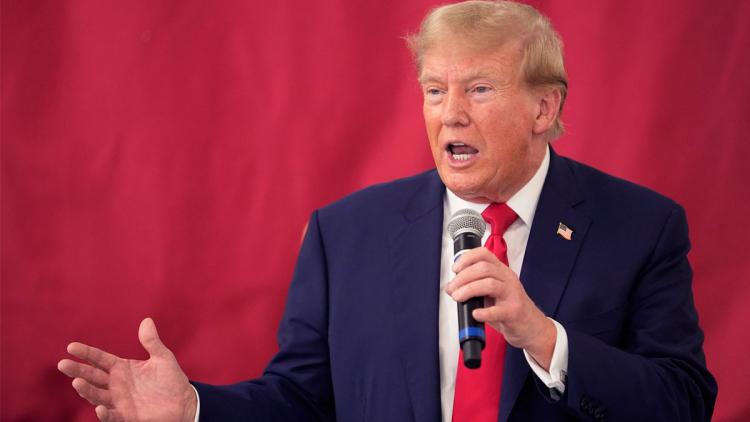The DC appellate court recently abstained from delivering a verdict on the reinstatement of the "limited gag order" issued against former President Donald Trump by federal judge Tanya Chutkan. However, the court urged the Department of Justice (DOJ) to present arguments regarding the possibility of reinstating this order.
The "limited gag order," initially issued by US District Judge Tanya Chutkan, prohibits Trump from publicly targeting special counsel Jack Smith and his staff, as well as other personnel associated with the DC district court. This order was temporarily paused by the appellate court pending further proceedings.
During Monday's hearing, the judges refrained from an immediate decision on reinstating the gag order, as reported by ABC News.
Earlier, in August, Trump pleaded not guilty to charges related to a criminal conspiracy aimed at overturning the 2020 election results that declared Joe Biden as President. Allegations included involvement in the use of "fake electors," manipulating the Justice Department for conducting "sham election crime investigations," attempting to influence the Vice President, and promoting false claims of a stolen election during the January 6 riot.
Trump vehemently denied any wrongdoing, labeling the charges as a "persecution of a political opponent" and dismissing them as a political witch hunt.
Judge Chutkan imposed the limited gag order after Trump made derogatory remarks on social media targeting Smith.
At the hearing, Trump's attorney, John Sauer, argued that the gag order curtailed Trump's freedom of speech during his political activities and violated his First Amendment rights.
Sauer argued that the circumstances were unprecedented and emphasized that any threat prompting a gag order must be imminent rather than speculative.
Special counsel Cecil VanDevender defended restrictions against direct attacks on Smith, citing Supreme Court precedents. However, the judges probed whether this violated Trump's First Amendment rights.
The judges posed hypothetical scenarios challenging the limits of the gag order, asking if Trump could respond to criticisms without engaging in inflammatory language or attacking credibility directly.
VanDevender suggested Trump could refute statements but not engage in inflammatory remarks or direct attacks. He stated Trump could express disagreement but not label someone a "liar."
The court's scrutiny highlighted the complexities in balancing free speech rights with judicial restrictions in a high-profile case, emphasizing the challenge of maintaining a fair trial while allowing political discourse.
(With Agency Inputs)
ALSO READ | Trump's Health Assessment: Doctor's Note Highlights 'Excellent' Status


















